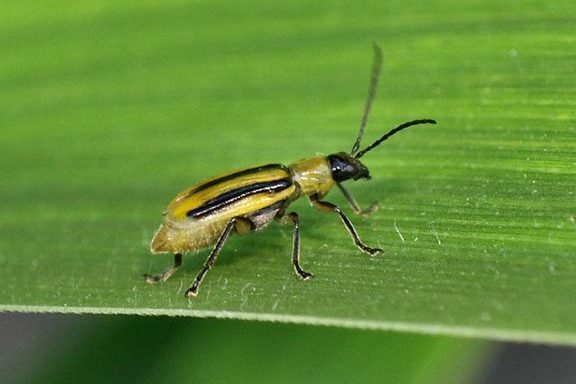
Research into fungal proteins for safer pest control
- Post by: Ana Mitrović
- 9.February, 2024
- Comments off
As certain soil insects, such as the destructive larvae of the western corn rootworm, are becoming increasingly difficult to control due to insecticide bans, our department is looking for alternative solutions. Investigating fungal proteins as potential biological insecticides, we focused on protease inhibitors, which are known to interfere with insect digestion. In collaboration with partners from the FunContrAPest project (ARIS J4-2543), we published a research article in the journal Insects titled »Diabrotica v. virgifera seems not affected by entomotoxic protease inhibitors from higher fungi«. While some fungal proteins effectively inhibited the digestive enzymes of the western corn rootworm, bioassays showed minimal effects on larval mortality, adult beetles or egg hatching. Surprisingly, similar proteins have previously been shown to be toxic to Colorado potato beetle larvae. Microscopic analysis revealed similarities in the gut structure of the two insects, suggesting that the resistance of the corn rootworm is due to an adaptation of the gut enzymes. Although the initial results on the corn rootworm were inconclusive, our commitment to researching different fungal proteins remains. With a focus on safer and climate smart biological pest control, we want to develop innovative solutions for sustainable agriculture.
Link: https://doi.org/10.3390/insects15010060

